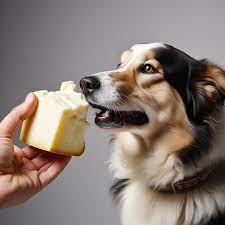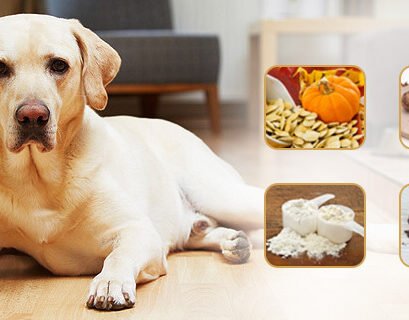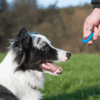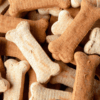Can Dogs Eat Brie Cheese?
Introduction
Brie cheese is a soft and creamy cheese that originated in France and is popular among humans for its rich and buttery flavor. It is often served with crackers, bread, fruits, or wine, and can be enjoyed as an appetizer, snack, or dessert.
But what about dogs? Can dogs eat brie cheese? And if so, how much and how often?
The answer is: yes, dogs can eat brie cheese, but only in small amounts and occasionally. Brie cheese is not toxic or harmful to dogs, and it can provide some nutrients and benefits to them. However, brie cheese is also very high in fat and calories, and it contains lactose and mold, which can cause some problems for dogs.
In this article, we will explore the pros and cons of giving brie cheese to dogs, and provide some tips and advice on how to do it safely and responsibly. We will also suggest some safer alternatives to brie cheese for dogs, in case you want to treat your furry friend with something else.
By the end of this article, you will have a better understanding of whether, how, and when to give brie cheese to your dog, and what to expect from it.
Are you ready? Let’s get started! 🧀
Okay, I will continue writing the content for the next section. Here is the second part:
Pros of Brie Cheese for Dogs
Brie cheese is not all bad for dogs, and it can have some positive effects on them if given in small amounts and occasionally. Here are some of the pros of brie cheese for dogs:
- Brie cheese is not toxic or harmful to dogs, unlike some other foods that humans enjoy, such as chocolate, grapes, or onions. This means that your dog will not get sick or poisoned from eating brie cheese, as long as they do not eat too much or too often.
- Brie cheese can provide some nutrients and benefits to dogs, such as protein, calcium, and vitamin A. Protein is essential for your dog’s growth and maintenance, as it helps build and repair their muscles, organs, and tissues. Calcium is important for your dog’s bone and dental health, as it helps strengthen and support their skeleton and teeth. Vitamin A is vital for your dog’s vision and immune system, as it helps protect and improve their eyesight and resistance to infections.
- Brie cheese can be used as a treat or a reward for dogs, as they usually love the taste and texture of cheese. You can use brie cheese to train your dog, to bond with your dog, or to spoil your dog on special occasions. However, you should always limit the amount and frequency of brie cheese, and never give it as a substitute for their regular diet.
As you can see, brie cheese can have some positive effects on your dog, but only if given in moderation and sparingly. However, brie cheese also has some negative effects on your dog,.
Cons of Brie Cheese for Dogs
Brie cheese is not all good for dogs, and it can have some negative effects on them if given in large amounts or frequently. Here are some of the cons of brie cheese for dogs:
- Brie cheese is very high in fat and calories, which can cause weight gain, obesity, and related health problems in dogs. A single ounce of brie cheese contains about 8 grams of fat and 95 calories, which is a lot for a dog, especially a small or inactive one. Excess fat and calories can lead to various issues, such as diabetes, pancreatitis, heart disease, and joint problems.
- Brie cheese contains lactose, which can cause digestive issues, such as diarrhea, gas, or vomiting, in lactose-intolerant dogs. Lactose is a type of sugar that is found in milk and dairy products, and some dogs lack the enzyme to digest it properly. This can result in gastrointestinal distress and discomfort, which can be mild or severe, depending on the amount and frequency of brie cheese.
- Brie cheese has a white mold rind, which can be edible but may cause allergic reactions or sensitivity in some dogs. The white mold rind is a type of fungus that gives brie cheese its distinctive flavor and texture, and it is generally safe for humans and dogs to eat. However, some dogs may be allergic or sensitive to it, and experience symptoms such as itching, swelling, or breathing difficulties.
As you can see, brie cheese can have some negative effects on your dog, but only if given in excess or regularly. However, brie cheese also has some safer alternatives for dogs.
Safer Alternatives to Brie Cheese for Dogs
Brie cheese is not the best choice for dogs, and it can have some negative effects on them if given in large amounts or frequently. However, there are some safer alternatives to brie cheese for dogs, that can provide similar or better benefits without the risks. Here are some of them:
- Lower-fat and lower-lactose cheese options, such as mozzarella, cottage cheese, or cheddar cheese. These cheeses are lower in fat and calories than brie cheese, and they contain less lactose, which can reduce the chances of digestive issues. They can also provide protein, calcium, and vitamin A to your dog, and they can be used as treats or rewards. However, you should still limit the amount and frequency of cheese, and avoid any cheese that is flavored, salted, or processed.
- Non-cheese alternatives, such as dried fish, jerky, or dog-friendly training treats. These treats are more suitable and nutritious for dogs than cheese, and they can provide protein, omega-3 fatty acids, and other vitamins and minerals to your dog. They can also be used as treats or rewards, and they are usually low in fat and calories. However, you should still check the ingredients and quality of the treats, and avoid any treats that are spicy, sugary, or artificial.
How to Choose and Serve the Best Cheese or Treat for Your Dog
Whether you choose to give brie cheese or a safer alternative to your dog, you should always consider their age, size, health, and preferences, and consult your vet before doing so. Here are some tips on how to choose and serve the best cheese or treat for your dog:
- Choose a cheese or treat that is suitable and safe for your dog, and avoid any cheese or treat that is toxic, harmful, or unhealthy for your dog. You can do some research online, read the labels, or ask your vet for recommendations.
- Serve the cheese or treat in small and bite-sized pieces, and cut off any rind, skin, or bone that might pose a choking or splintering hazard. You can also grate, melt, or mix the cheese or treat with your dog’s food, to make it easier and more appealing for them to eat.
- Serve the cheese or treat in moderation and occasionally, and never give it as a substitute for their regular diet. You should also monitor your dog’s reaction and behavior after eating the cheese or treat, and stop giving it if you notice any signs of discomfort, allergy, or illness.
Conclusion
Brie cheese is a delicious and popular cheese among humans, but it is not the best choice for dogs. While dogs can eat brie cheese in small amounts and occasionally, it can also cause some problems for them, such as weight gain, digestive issues, or allergic reactions.
Therefore, it is better to give your dog some safer alternatives to brie cheese, such as lower-fat and lower-lactose cheese options, or non-cheese alternatives, that can provide similar or better benefits without the risks.
However, no matter what cheese or treat you choose to give your dog, you should always do it safely and responsibly, considering their age, size, health, and preferences, and consulting your vet before doing so.
We hope this article has been helpful and informative for you. If you have any questions, comments, or feedback, please feel free to contact us. We would love to hear from you.
FAQS
Q: What if my dog ate brie?
If your dog ate brie, it depends on how much and how often they ate it. Brie is not toxic or harmful to dogs, but it is very high in fat and calories, and it contains lactose and mold, which can cause some problems for dogs. If your dog ate a small amount of brie as an occasional treat, they will likely be fine. However, if your dog ate a large amount of brie or ate it regularly, they may experience some symptoms, such as weight gain, digestive issues, or allergic reactions. Some of the signs to watch out for are:
- Vomiting
- Diarrhea
- Gas
- Loss of appetite
- Lethargy
- Abdominal pain or swelling
- Dehydration
- Itching
- Swelling
- Breathing difficulties
If your dog shows any of these signs, or if you are worried about their health, you should contact your veterinarian as soon as possible. They may need to examine your dog, run some tests, or prescribe some medications to treat the condition
Q: Can dogs eat the skin on brie?
Q: What cheese can dogs eat?
Dogs can eat some types of cheese, but not all. Cheese is not a necessary part of a dog’s diet, and it should only be given as an occasional treat and in moderation. Some of the factors to consider when choosing cheese for your dog are:
- The fat and calorie content. Cheese is high in fat and calories, which can cause weight gain, obesity, and related health problems in dogs. Therefore, you should limit the amount and frequency of cheese, and choose low-fat and low-calorie options, such as mozzarella, cottage cheese, or cheddar cheese.
- The lactose content. Cheese contains lactose, which is a type of sugar that is found in milk and dairy products. Some dogs lack the enzyme to digest lactose properly, and can suffer from digestive issues, such as diarrhea, gas, or vomiting. Therefore, you should avoid giving cheese to lactose-intolerant dogs, and choose low-lactose options, such as cottage cheese or hard cheese.
- The ingredients and additives. Some cheeses contain herbs or other products that are toxic to dogs, such as garlic, onions, chives, raisins, or chocolate. Therefore, you should avoid giving cheese that is flavored, salted, or processed, and choose plain and natural options, such as organic and non-GMO cheese.
Some of the best cheeses to give your dog are:
- Mozzarella. This is a soft and mild cheese that is low in fat and calories, and high in protein and calcium. It is easy to digest and can be used as a treat or a reward for your dog. However, you should still limit the amount and frequency of mozzarella, and avoid any mozzarella that is smoked, salted, or mixed with other ingredients.
- Cottage cheese. This is a fresh and creamy cheese that is low in fat and sodium, and high in protein and calcium. It is also low in lactose, which makes it suitable for lactose-intolerant dogs. It can be used as a treat or a supplement for your dog’s diet, as it can help with digestion and bone health. However, you should still limit the amount and frequency of cottage cheese, and choose low-fat or fat-free versions.
- Cheddar cheese. This is a hard and sharp cheese that is low in lactose and high in protein and calcium. It can be used as a treat or a reward for your dog, as it has a strong and appealing flavor. However, you should still limit the amount and frequency of cheddar cheese, and choose low-fat or reduced-fat versions.
Q: Is it safe to give dogs soft cheese?
Soft cheese is a type of cheese that has a soft and creamy texture, such as brie, camembert, or cream cheese. Soft cheese is not necessarily unsafe for dogs, but it is not the best choice either. Some of the reasons are:
- Soft cheese is high in fat and calories, which can cause weight gain, obesity, and related health problems in dogs. Therefore, you should limit the amount and frequency of soft cheese, and choose low-fat or fat-free versions.
- Soft cheese contains more lactose than hard
Q: Can dogs eat brie cheese?
A: Yes, dogs can eat brie cheese, but only in small amounts and occasionally. Brie cheese is not toxic or harmful to dogs, and it can provide some nutrients and benefits to them. However, brie cheese is also very high in fat and calories, and it contains lactose and mold, which can cause some problems for dogs.
Q: What are the benefits of brie cheese for dogs?
A: Brie cheese can provide some benefits for dogs, such as protein, calcium, and vitamin A. Protein is essential for your dog’s growth and maintenance, as it helps build and repair their muscles, organs, and tissues. Calcium is important for your dog’s bone and dental health, as it helps strengthen and support their skeleton and teeth. Vitamin A is vital for your dog’s vision and immune system, as it helps protect and improve their eyesight and resistance to infections.
Q: What are the risks of brie cheese for dogs?
A: Brie cheese can also have some risks for dogs, such as weight gain, digestive issues, or allergic reactions. Weight gain can result from the high fat and calorie content of brie cheese, which can lead to obesity and related health problems, such as diabetes, pancreatitis, heart disease, and joint problems. Digestive issues can result from the lactose content of brie cheese, which can cause diarrhea, gas, or vomiting in lactose-intolerant dogs. Allergic reactions can result from the mold rind of brie cheese, which can cause itching, swelling, or breathing difficulties in some dogs.
Q: How much brie cheese can I give my dog?
A: The amount of brie cheese that you can give your dog depends on several factors, such as your dog’s age, size, health, and preferences. However, as a general rule, you should limit the amount of brie cheese to no more than 10% of your dog’s daily calorie intake, and give it only as an occasional treat. For example, if your dog needs 500 calories per day, you can give them no more than 50 calories of brie cheese, which is about one ounce.
Q: Are there any safer alternatives to brie cheese for dogs?
A: Yes, there are some safer alternatives to brie cheese for dogs, that can provide similar or better benefits without the risks. Here are some of them:
- Lower-fat and lower-lactose cheese options, such as mozzarella, cottage cheese, or cheddar cheese. These cheeses are lower in fat and calories than brie cheese, and they contain less lactose, which can reduce the chances of digestive issues. They can also provide protein, calcium, and vitamin A to your dog, and they can be used as treats or rewards. However, you should still limit the amount and frequency of cheese, and avoid any cheese that is flavored, salted, or processed.
- Non-cheese alternatives, such as dried fish, jerky, or dog-friendly training treats. These treats are more suitable and nutritious for dogs than cheese, and they can provide protein, omega-3 fatty acids, and other vitamins and minerals to your dog. They can also be used as treats or rewards, and they are usually low in fat and calories. However, you should still check the ingredients and quality of the treats, and avoid any treats that are spicy, sugary, or artificial.
Related Posts
Are Dogs Allowed In CVS?
March 22, 2024• Dog
Are Dogs Allowed in Duane Reade?
March 22, 2024• Dog
Natural Dewormers for Dogs: Safe and Effective
March 15, 2024• Dog, Dog Health
How Do I Comfort My Dog After Neutering?
March 6, 2024• Dog, Dog Health
Dog Rubs Face on Carpet: A Guide to Why
March 5, 2024• Dog















The point of view of your article has taught me a lot, and I already know how to improve the paper on gate.oi, thank you.